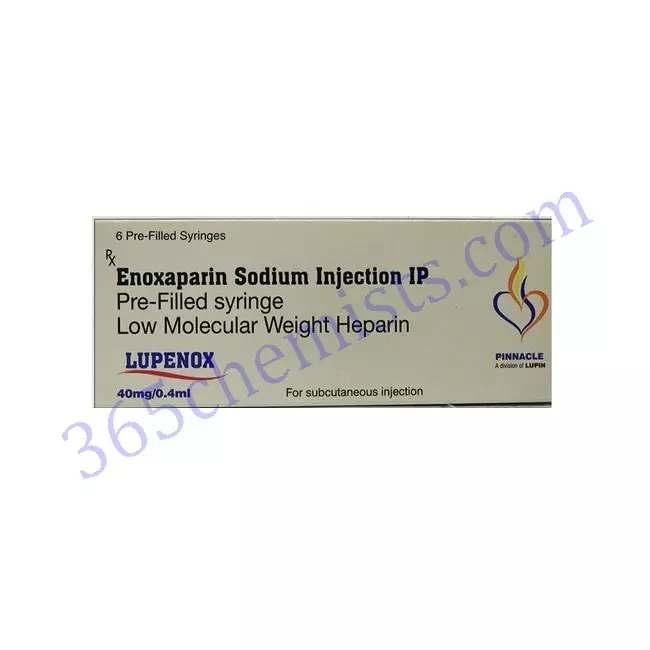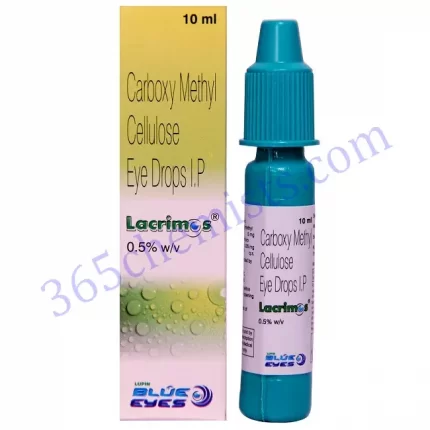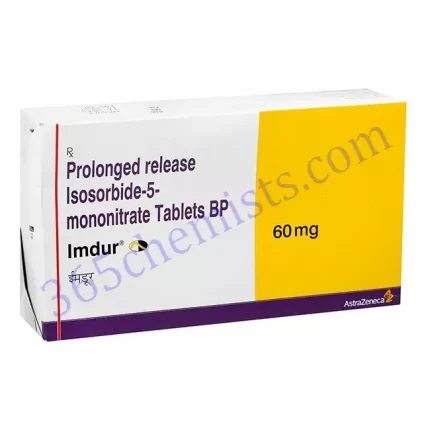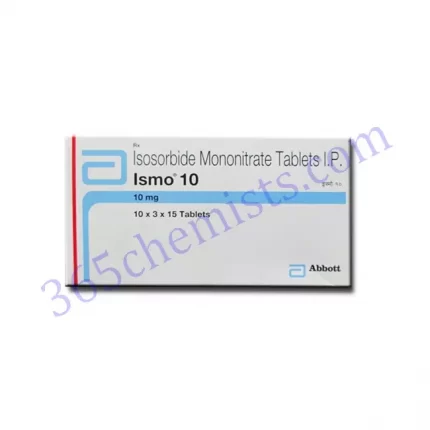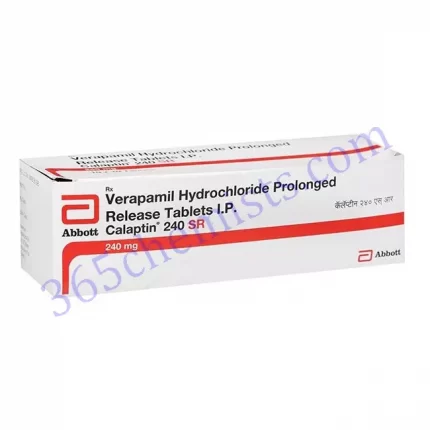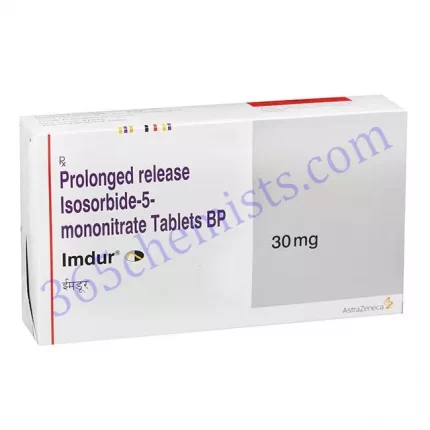Introduction
Enoxaparin is a low molecular weight heparin (LMWH) medication that is utilised for the treatment of blood clots as well as their prevention. Lupenox 40mg Injection contains this medication. It is a type of anticoagulant that works by inhibiting certain clotting factors in the blood, and as a result, it lowers the risk of blood clot formation and the complications that are associated with it. Lupenox Injection is a popular choice for treating a wide variety of medical conditions that call for anticoagulant treatment.
Uses of Lupenox 40mg Injection
- Lupenox Injection is frequently used for the prevention of deep vein thrombosis (also known as DVT), which is a condition that is characterised by the formation of blood clots in the deep veins, most commonly in the legs. In order to lessen the likelihood of clot formation, it is frequently recommended as a preoperative medication for patients undergoing major surgical procedures, such as those involving the abdominal or orthopaedic regions of the body.
- Treatment for Deep Vein Thrombosis (DVT): In situations where deep vein thrombosis has already developed, the anticoagulant properties of Lupenox Injection are used to treat the condition. This helps dissolve the existing clot and stops it from growing further. For continued prevention against blood clots, it is frequently combined with oral anticoagulant medications.
- Lupenox Injection is also indicated for the prevention of pulmonary embolism (also known as PE), which is a condition that occurs when a blood clot travels to the lungs and obstructs the pulmonary arteries. Lupenox Injection helps prevent this potentially life-threatening condition by lessening the likelihood of blood clots forming in the patient.
- Clot Prevention in Angina and Heart Attacks Lupenox Injection can be prescribed as part of the treatment regimen for patients who have unstable angina or myocardial infarction (also known as a heart attack) in order to prevent the formation of clots and reduce the risk of further cardiovascular complications.
Dosage and Administration
The dose of 40 milligrammes of Lupenox The dosage of the injection may change depending on the specific medical condition that is being treated, the patient’s weight, and the directions given by the healthcare provider. In most cases, it is given in the form of a subcutaneous injection, which means the injection is given just under the skin. Depending on the recommendation of the medical professional, the site of the injection could be the outer aspect of the upper arm or the abdomen.
Related Product
Lupenox 40mg Injection
Lupenox 60mg Injection
Precautions and Warnings
- Risk of Bleeding: Taking Lupenox Injection increases the risk of bleeding, particularly in patients who have a history of bleeding disorders, who have recently undergone surgery, who have gastrointestinal ulcers, or who are taking other anticoagulant medications. It is essential that you provide the healthcare provider with information regarding any preexisting medical conditions as well as any medications that you are currently taking.
- Spinal or Epidural Hematoma: The use of Lupenox Injection is linked to a side effect that is uncommon but potentially life-threatening, and it is called spinal or epidural hematoma. In the event that a spinal or epidural procedure is carried out while the patient is taking the medication, this can result in paralysis that is either long-term or permanent. Please let your healthcare provider know if you have had any procedures performed on your spine or if you are undergoing spinal anaesthesia.
- Lupenox Injection can be administered during pregnancy and breastfeeding; however, this should only be done so under the direction and supervision of a qualified medical professional. You and your healthcare provider need to give careful consideration to both the potential benefits and potential risks.
- Drug Interactions: Inform your healthcare provider about any and all medications you are currently taking, including those purchased over-the-counter and any herbal supplements you take. There is a possibility that Lupenox Injection and other medications will interact negatively, which could increase the risk of bleeding or reduce the efficacy of the Lupenox Injection.
Potential Side Effects
Common adverse reactions that may be caused by Lupenox Injection include the following:
a localised area of bleeding or bruising at the injection site
A feeling of sickness or puking
A localised area of discomfort or irritation at the injection site.
Reactions on the skin, such as rashes or itching
In most cases, these adverse effects are mild and only temporary. However, you should seek medical attention as soon as possible if you experience severe or persistent side effects, such as unusual bleeding or signs of an allergic reaction.
Conclusion
Enoxaparin is the active ingredient in the anticoagulant medication known as Lupenox 40mg Injection. This medication is used both for the prevention and treatment of blood clots. To ensure that the Lupenox Injection is used in a manner that is both safe and effective, it is necessary to take the medication exactly as directed, to take all necessary precautions, and to have regular checkups with a medical professional. If you have any concerns or questions, it is best to consult with your healthcare provider for additional direction.

